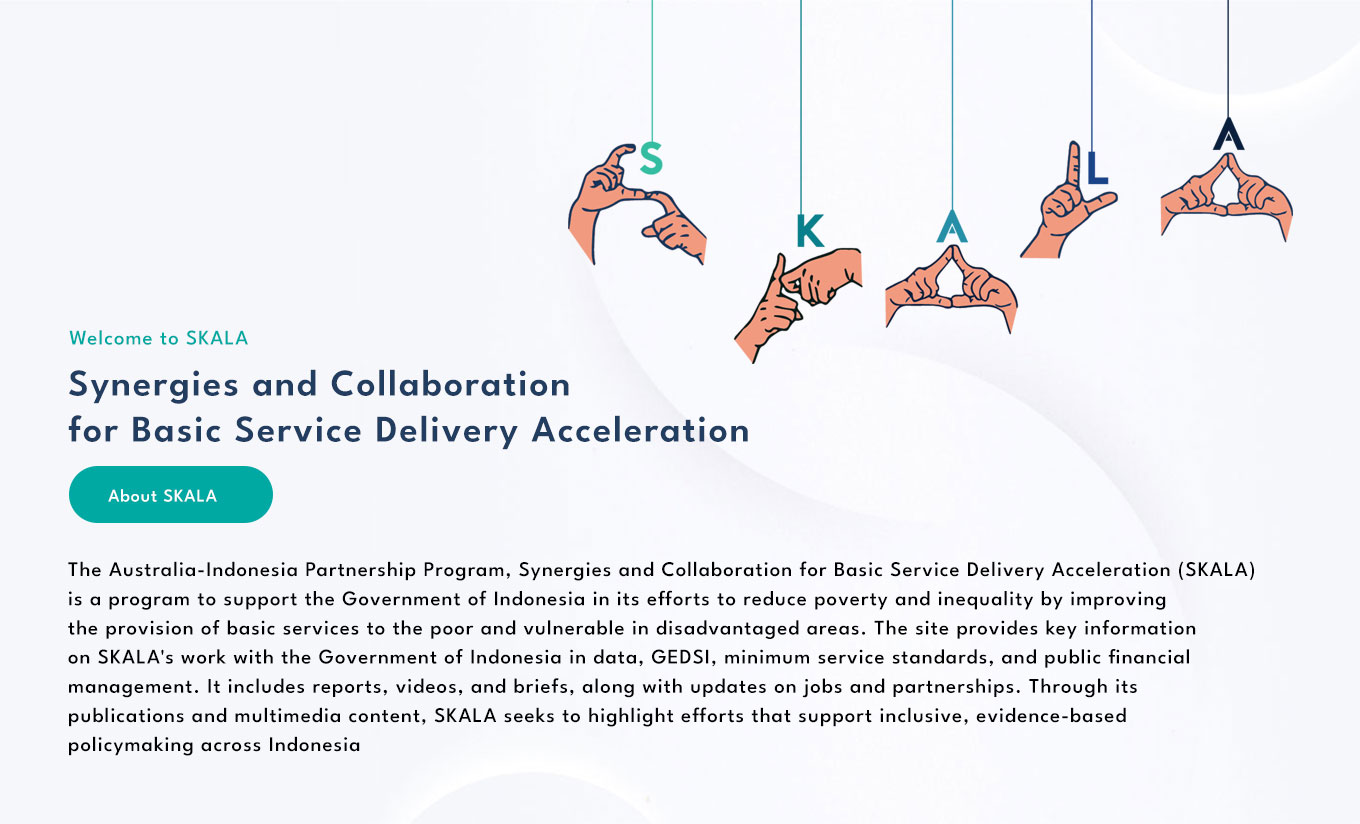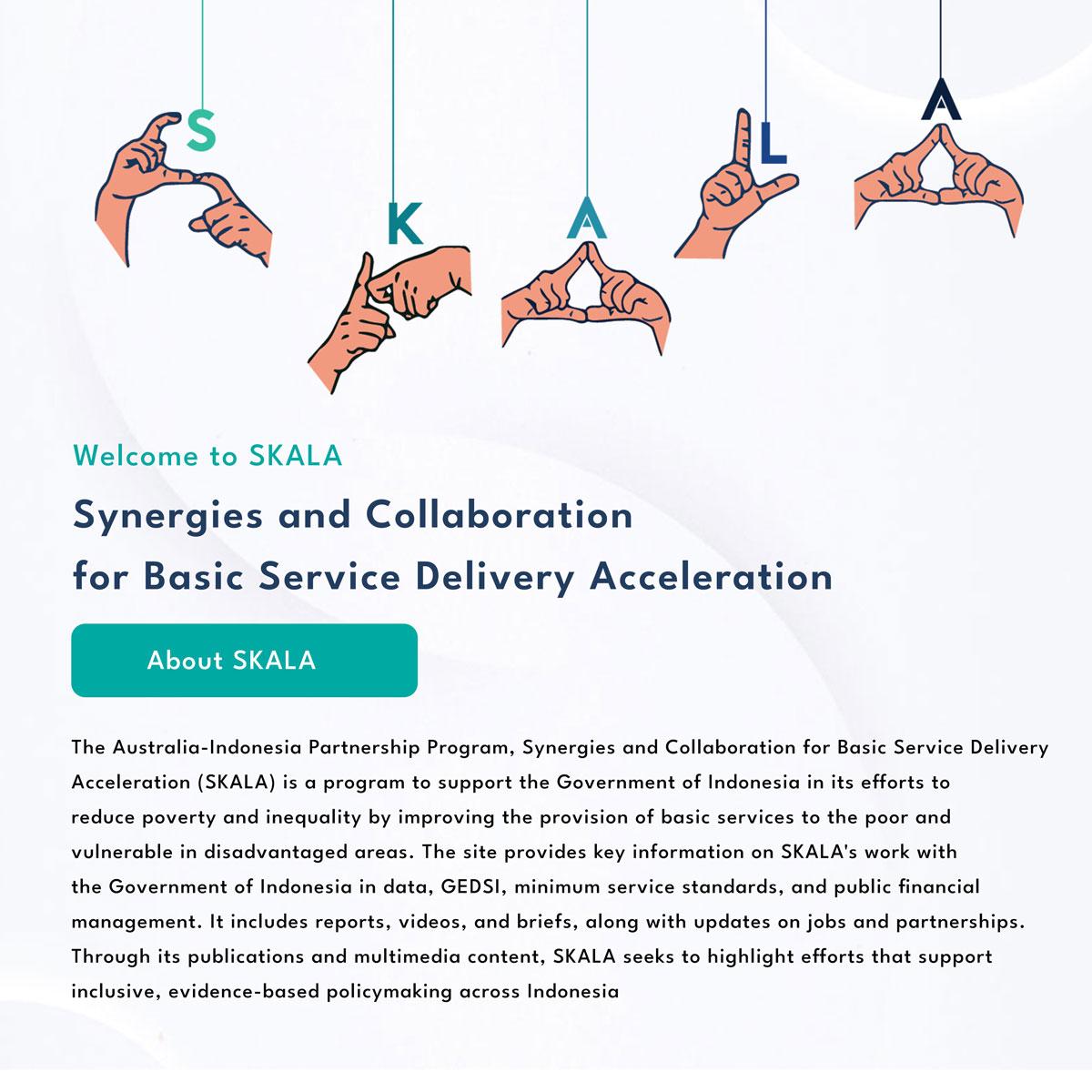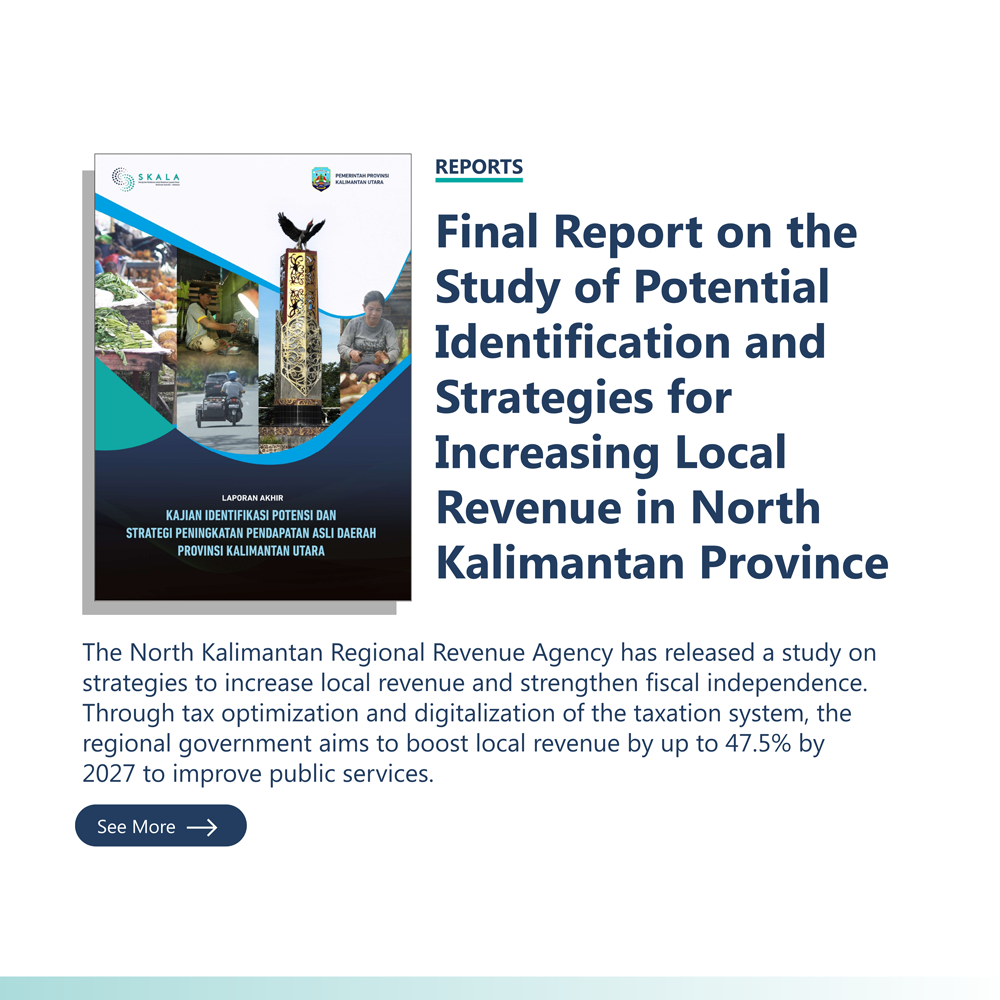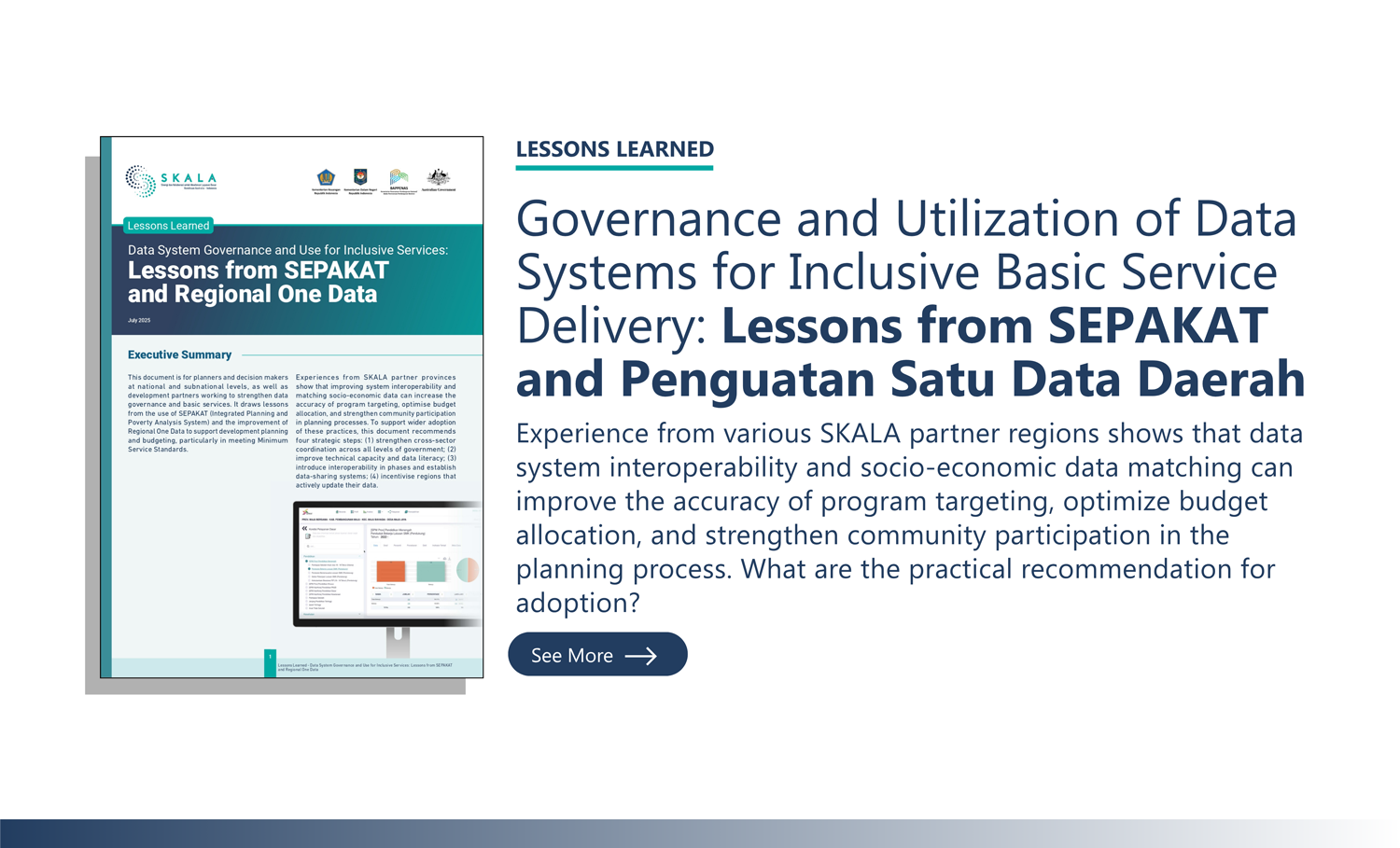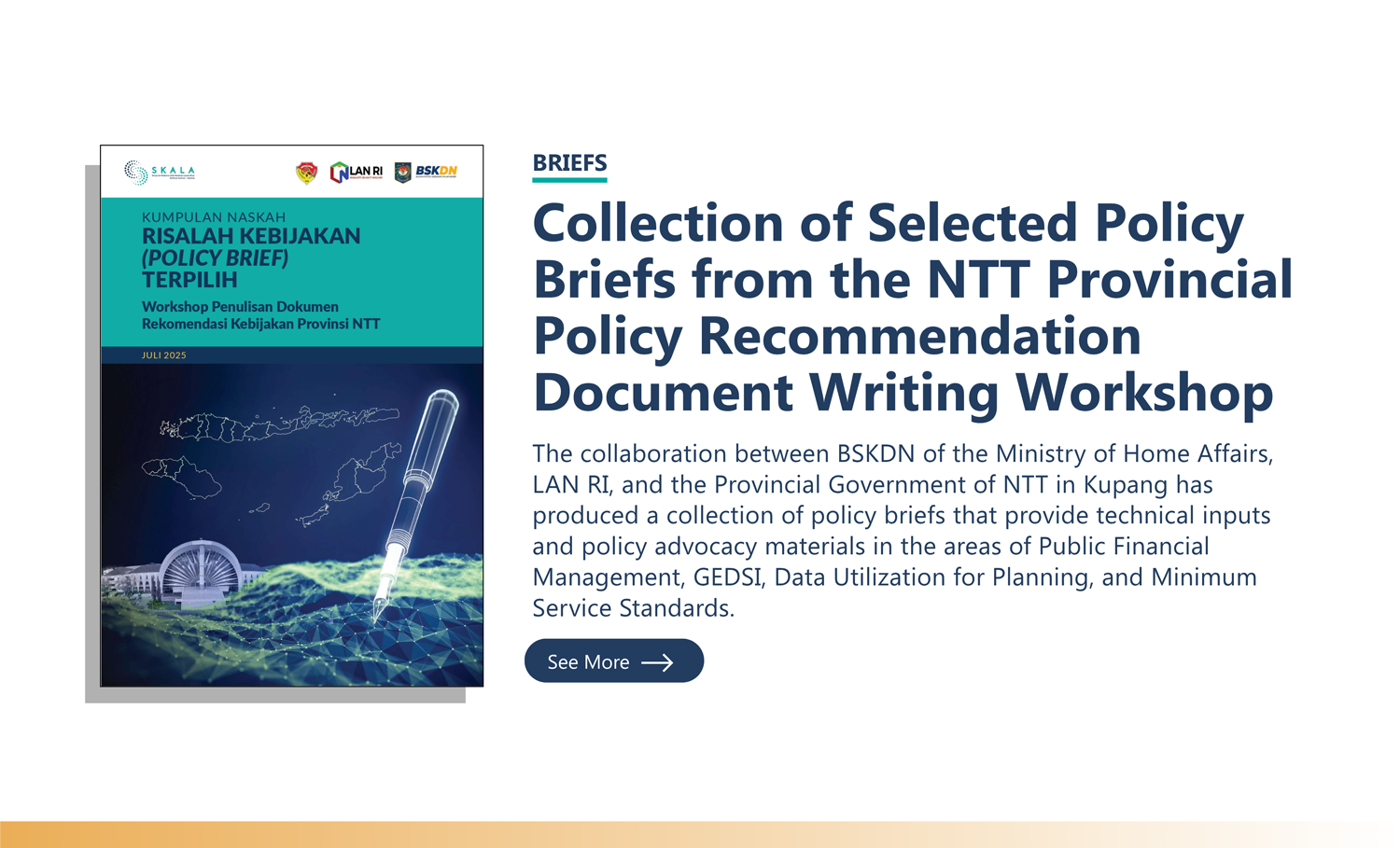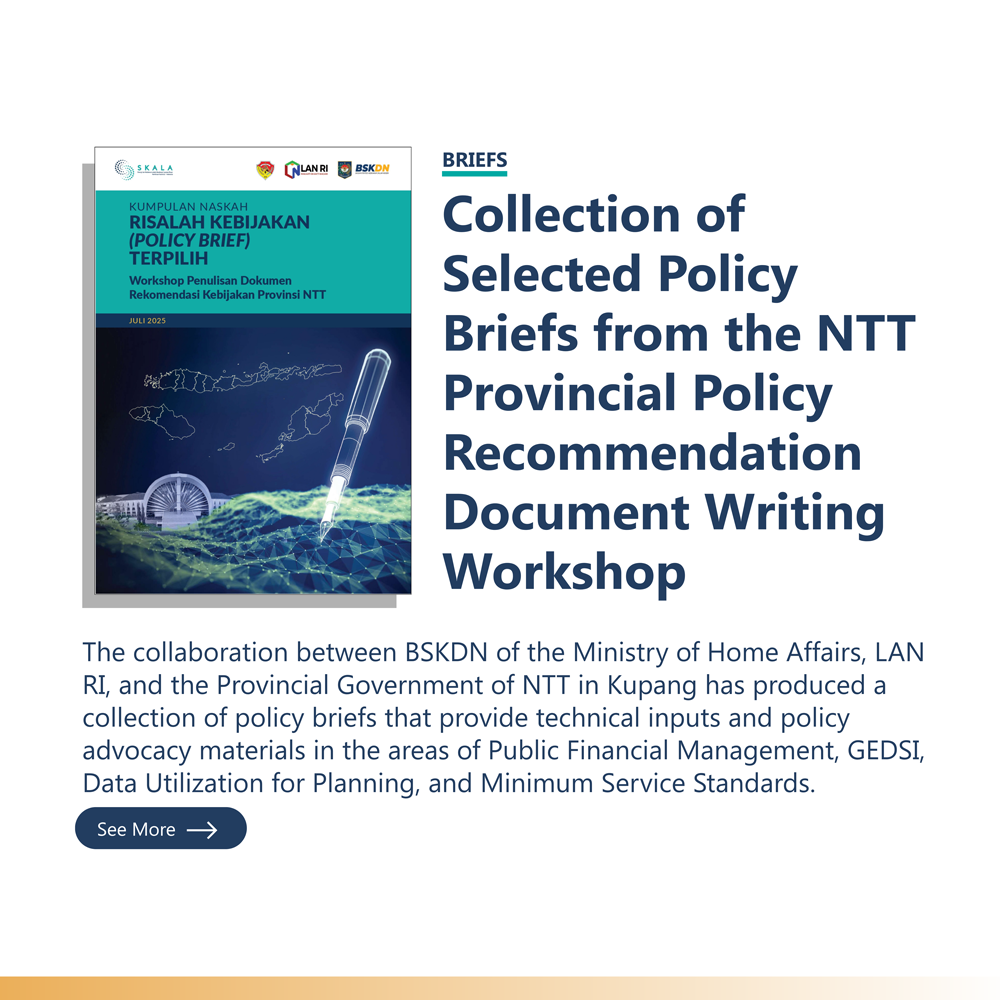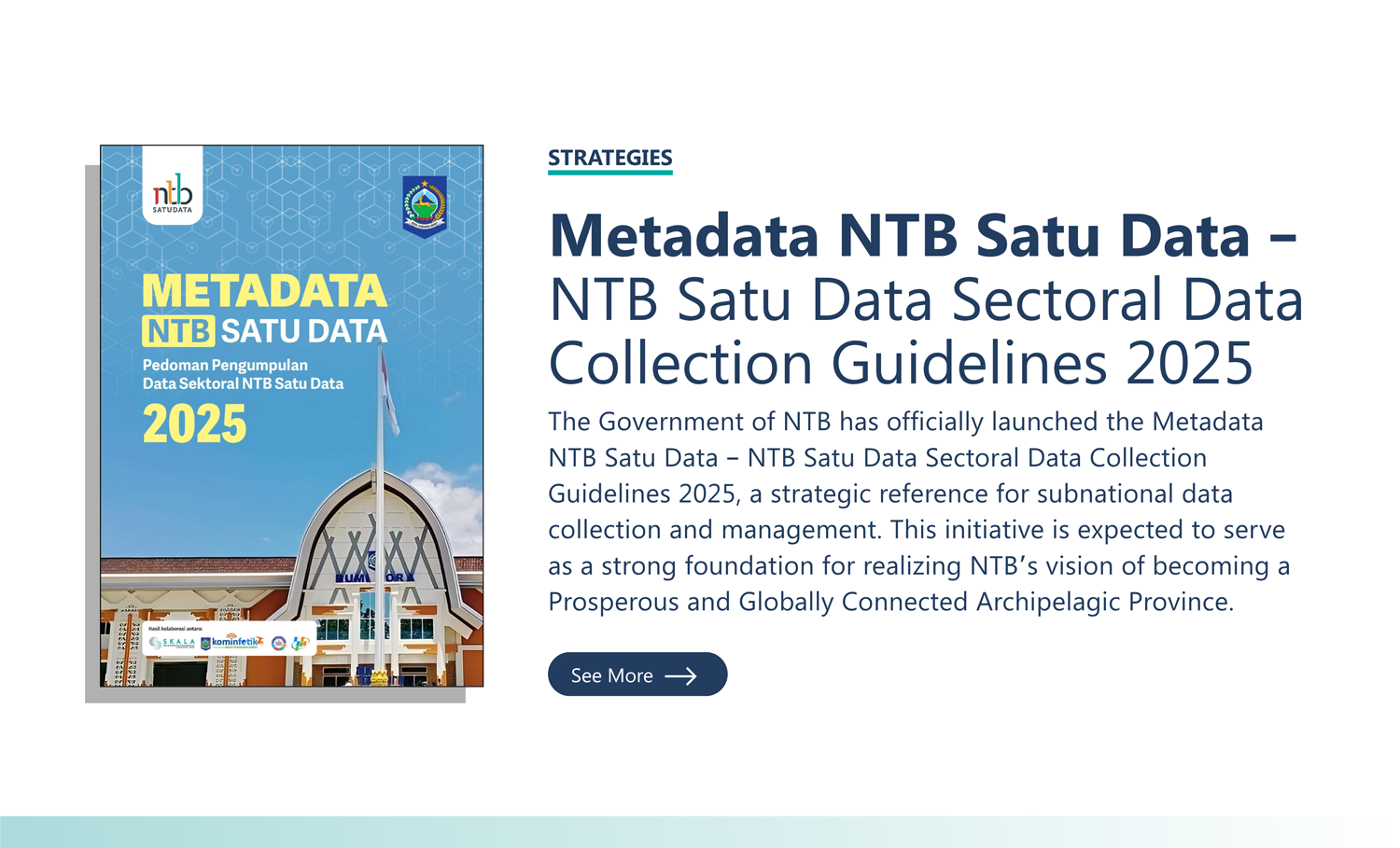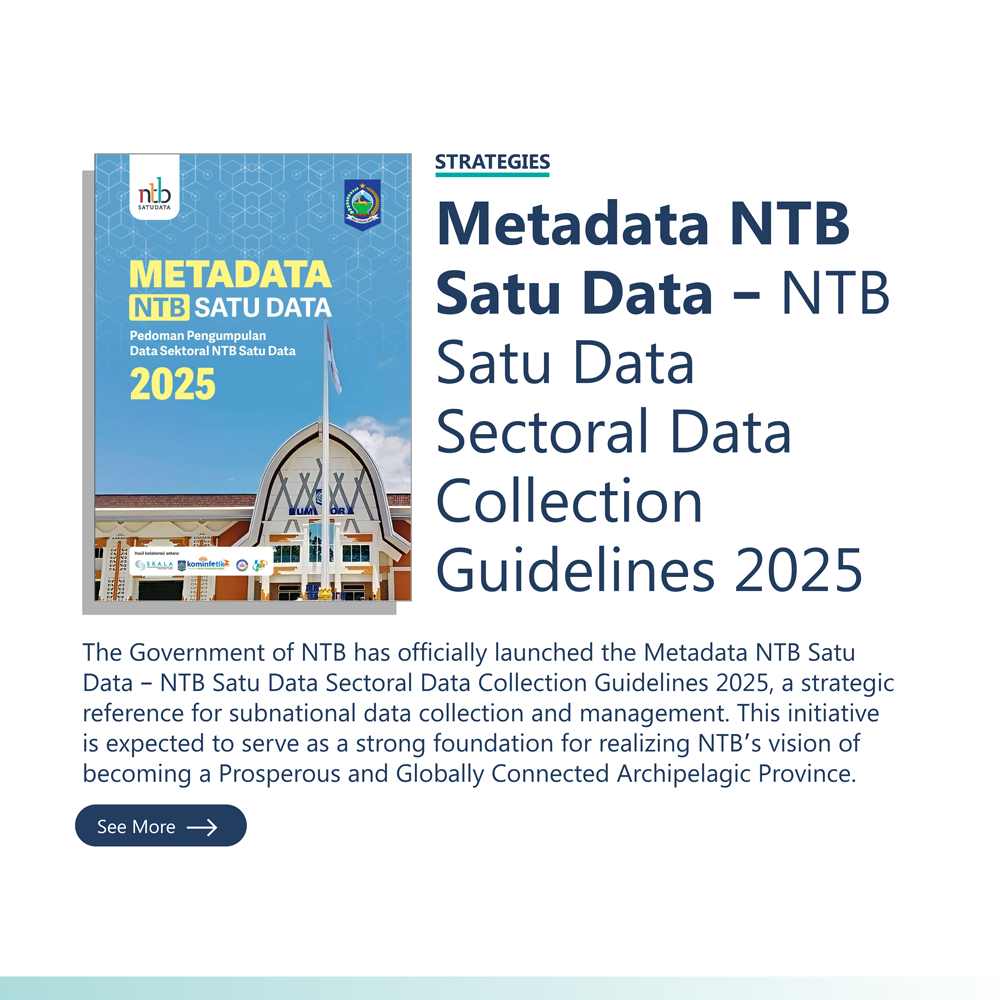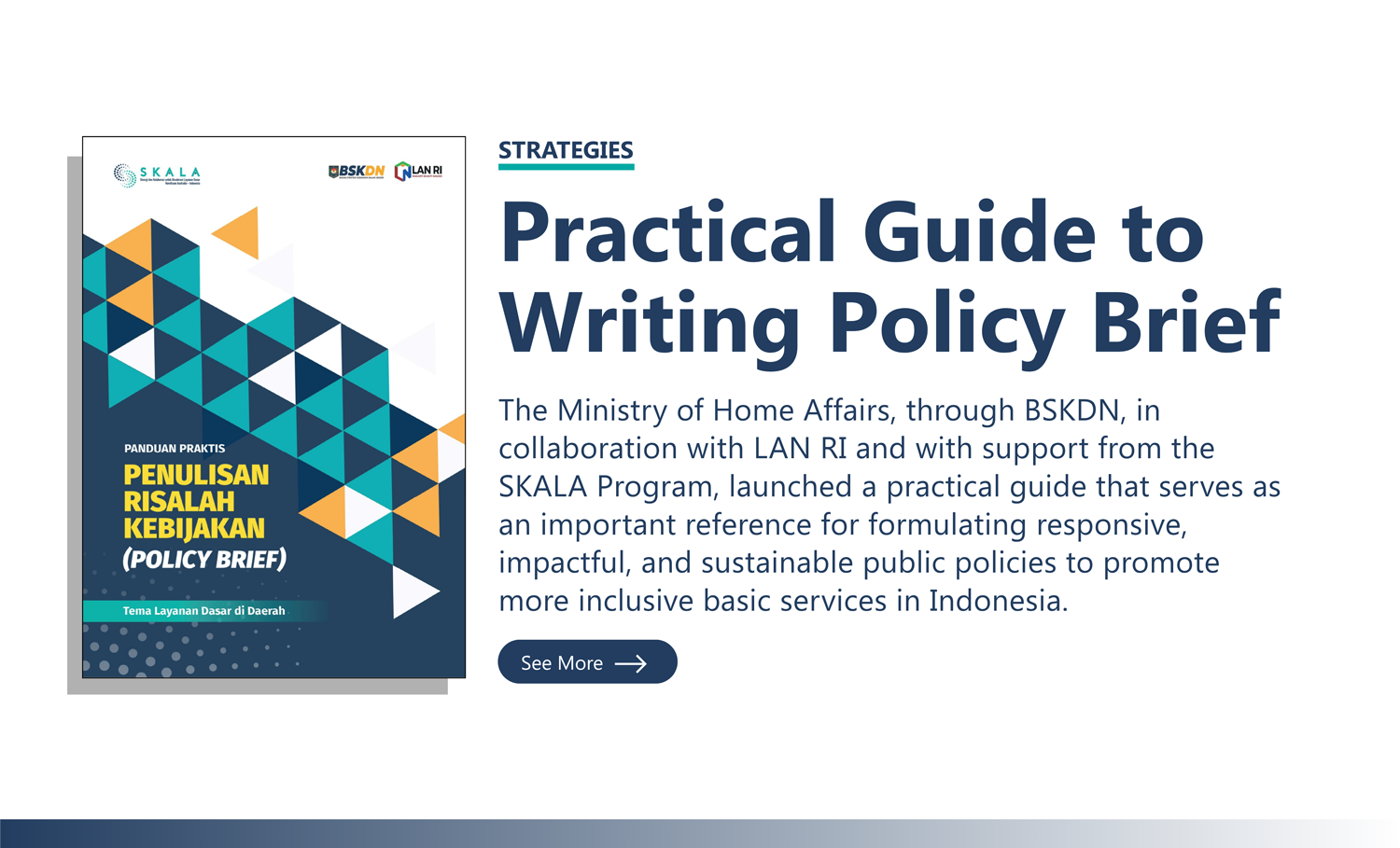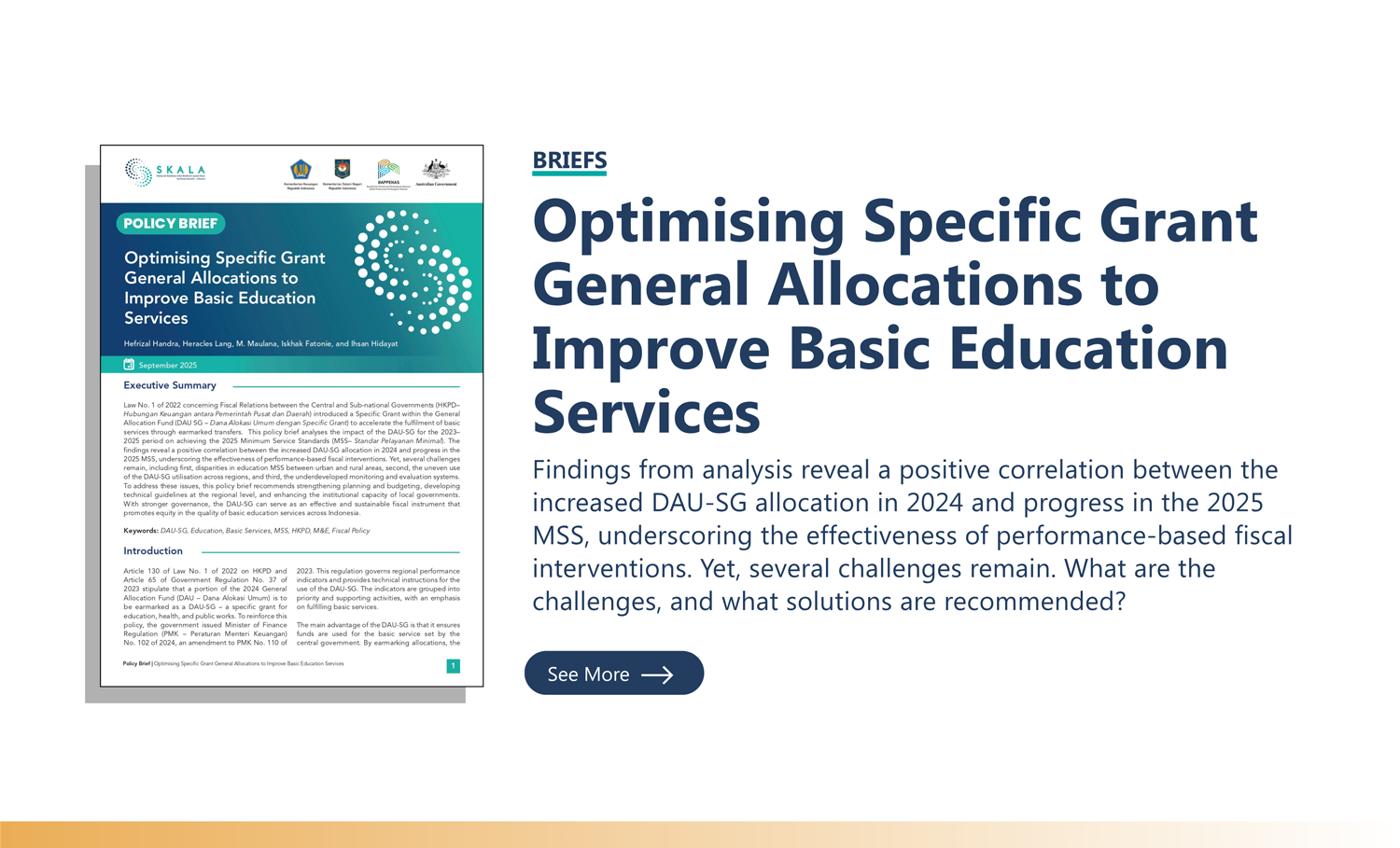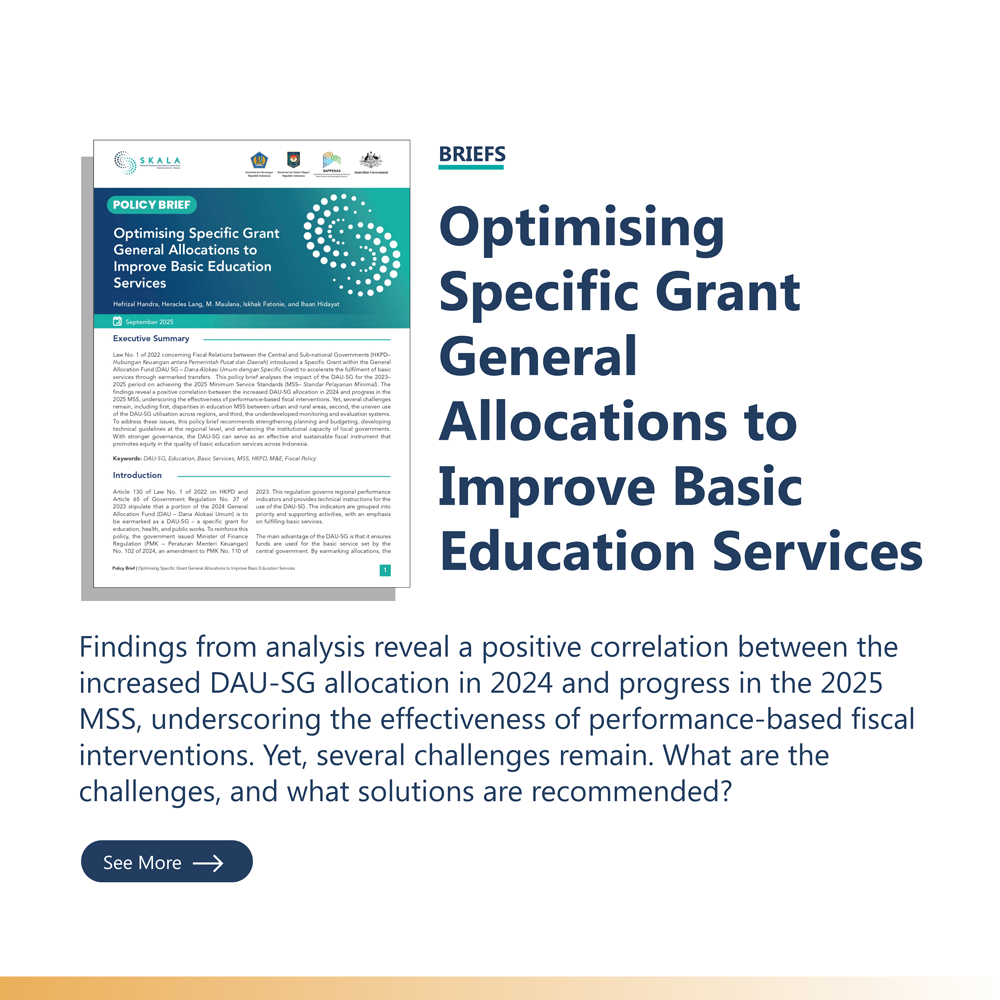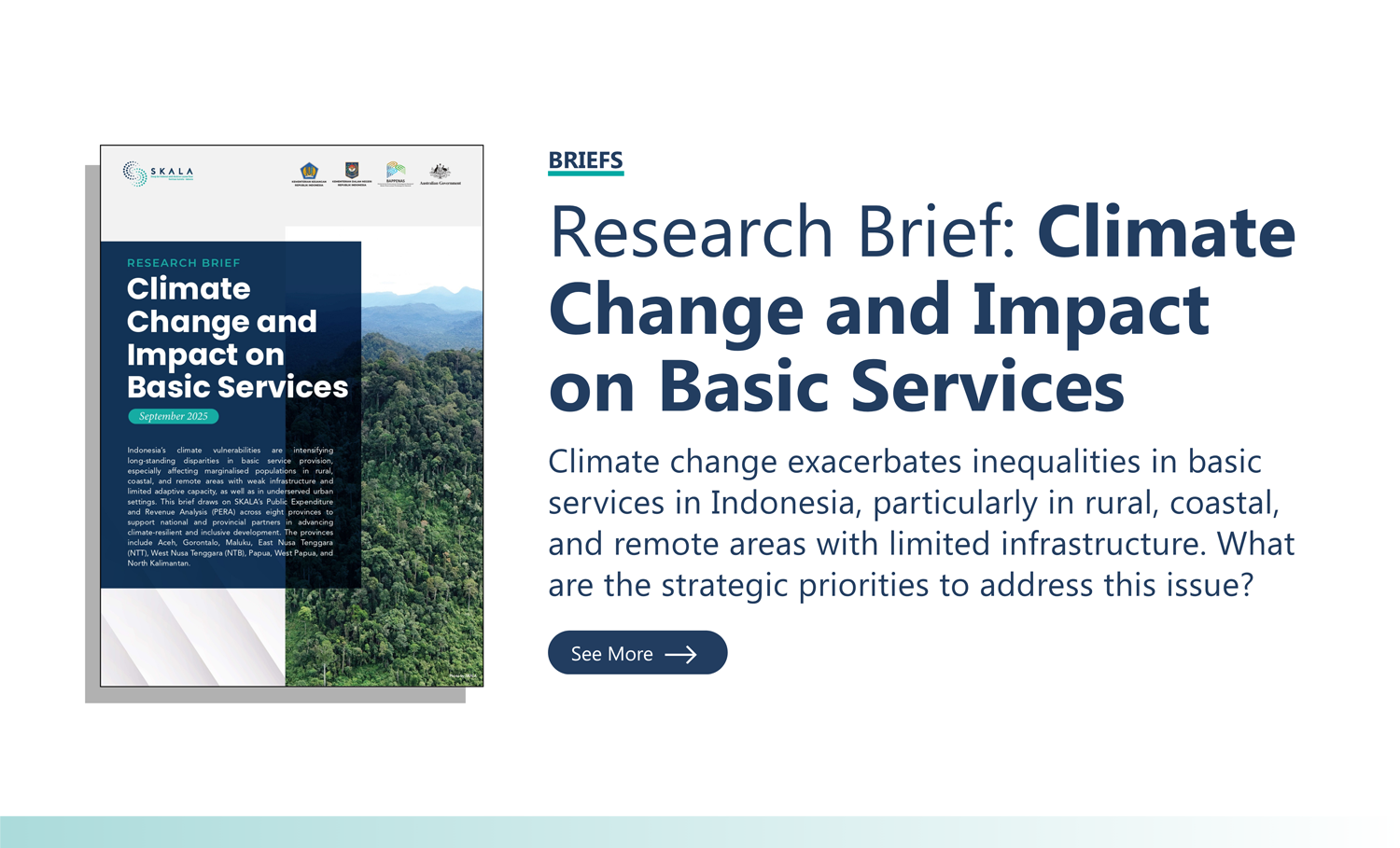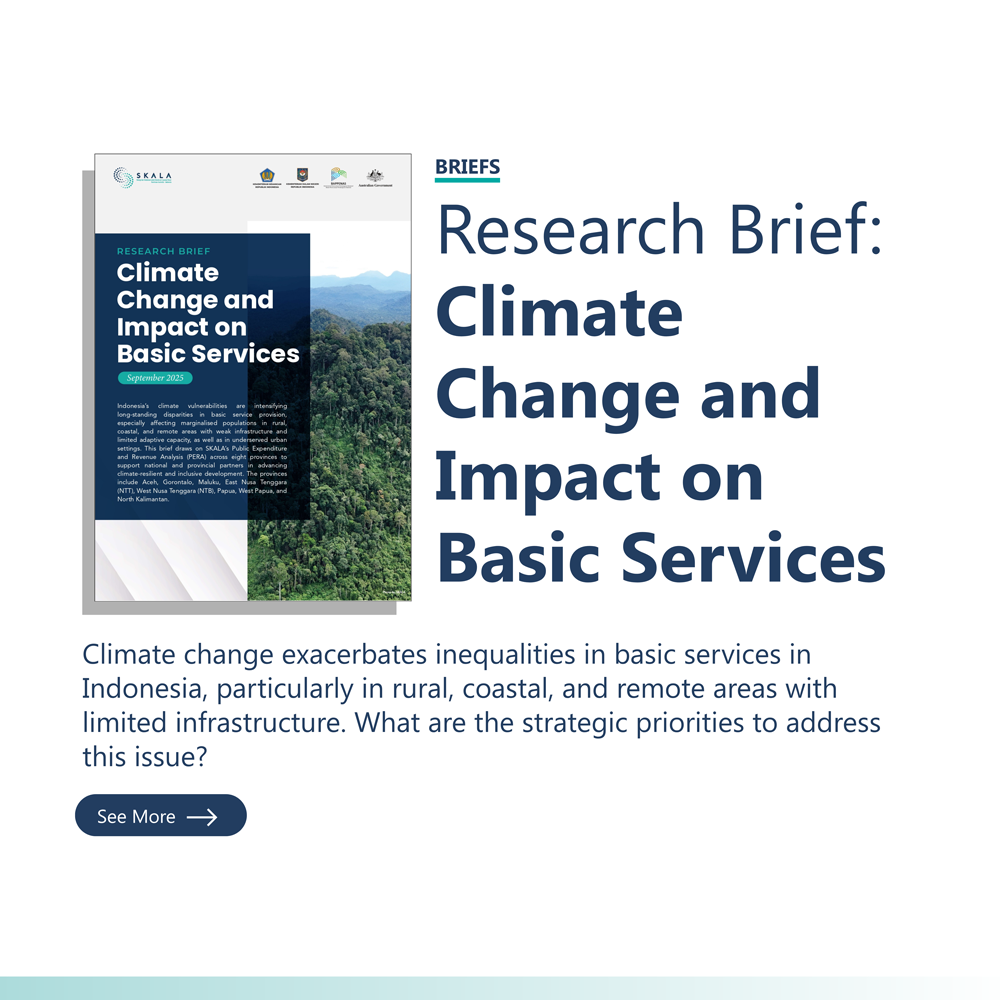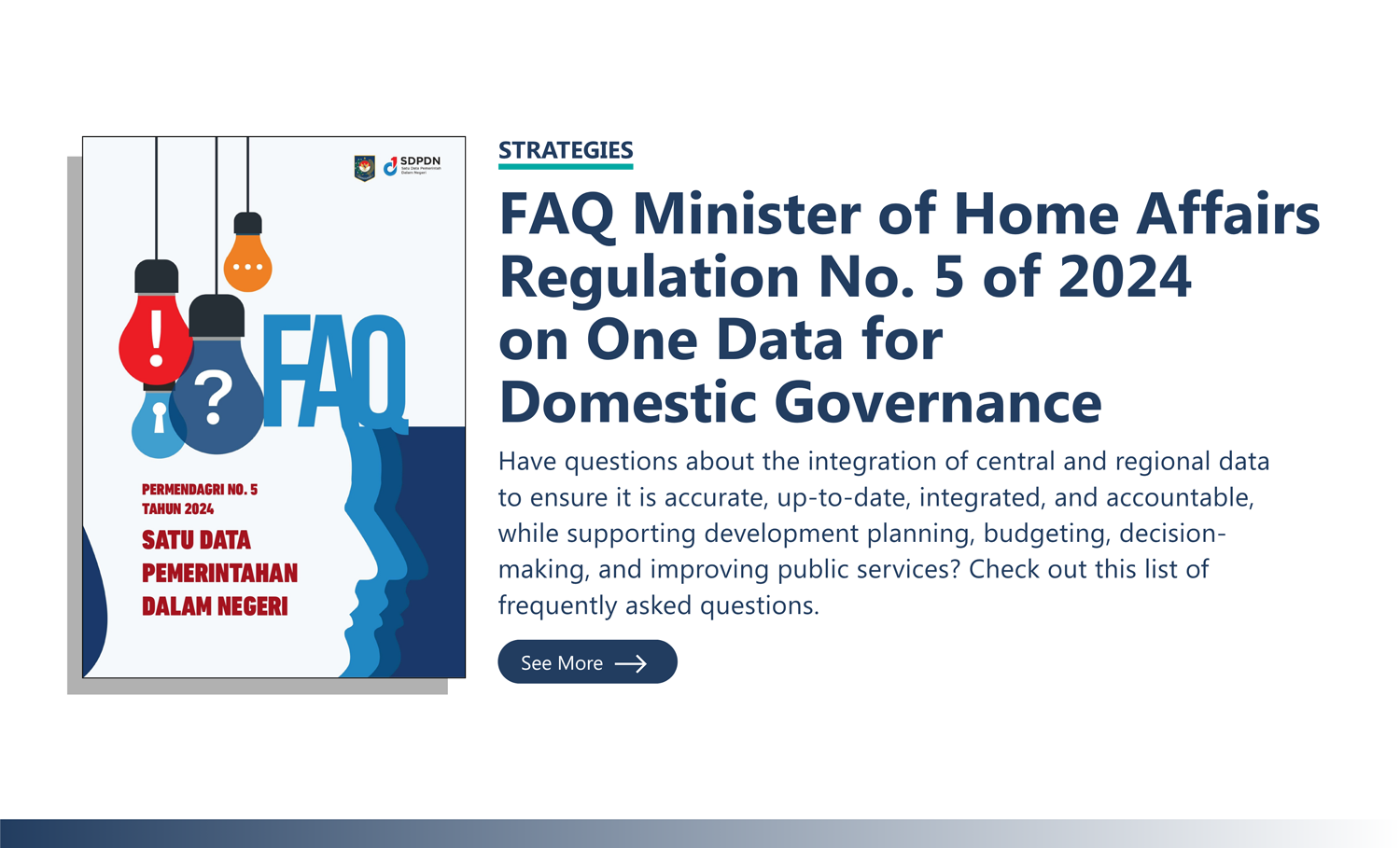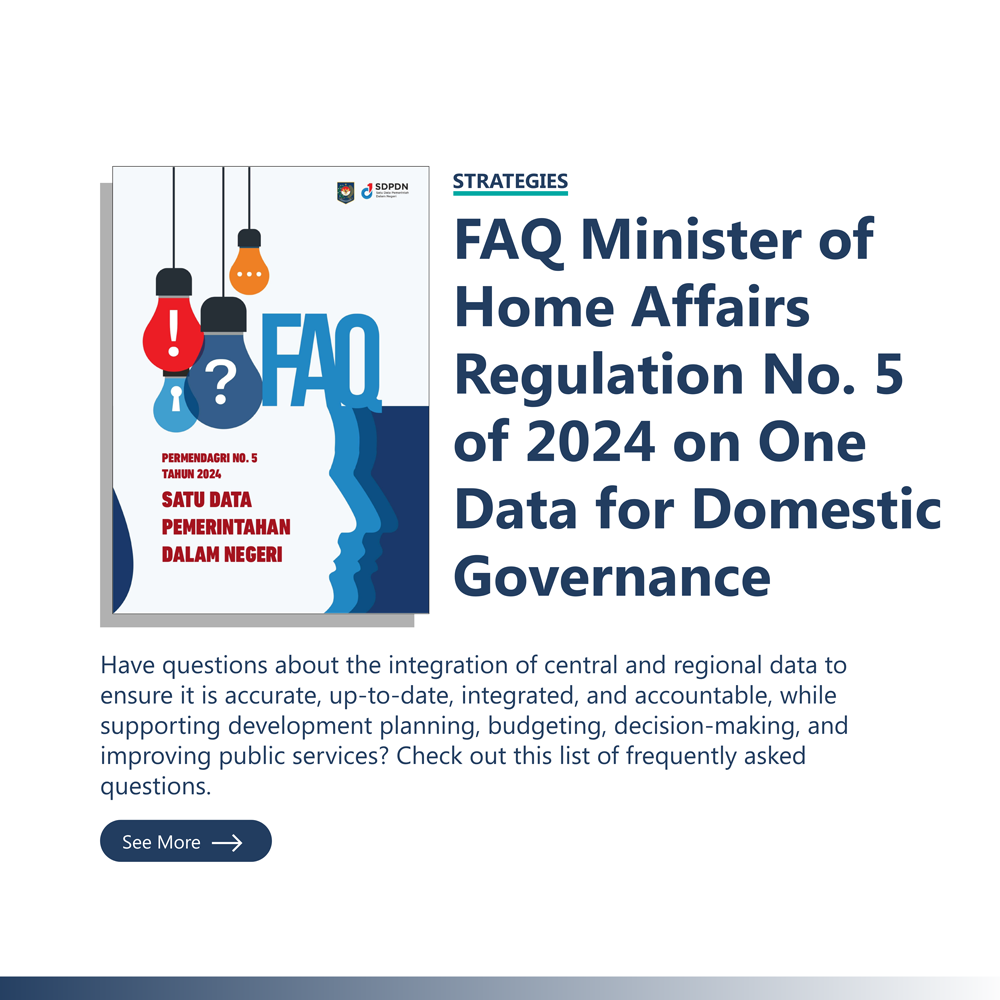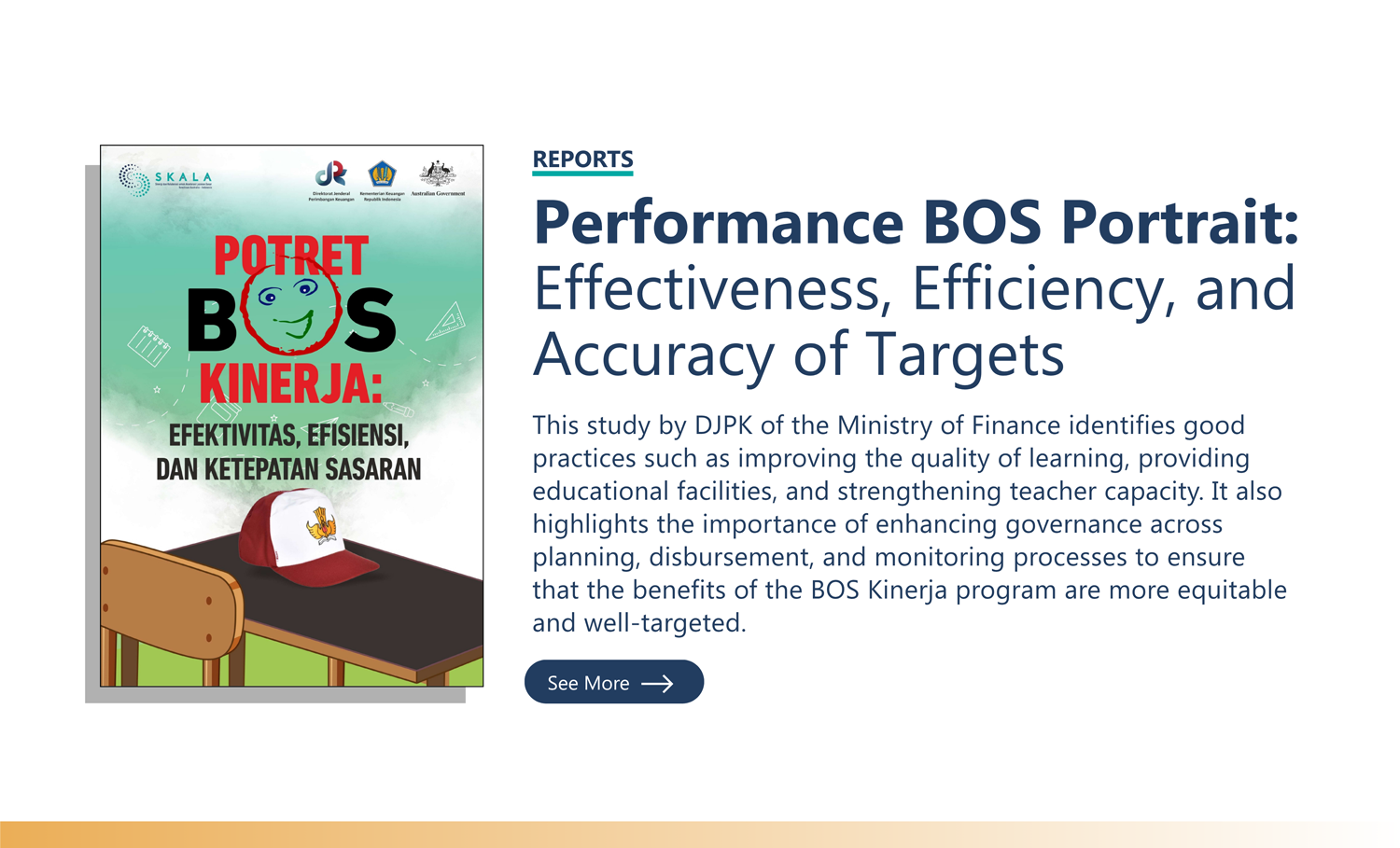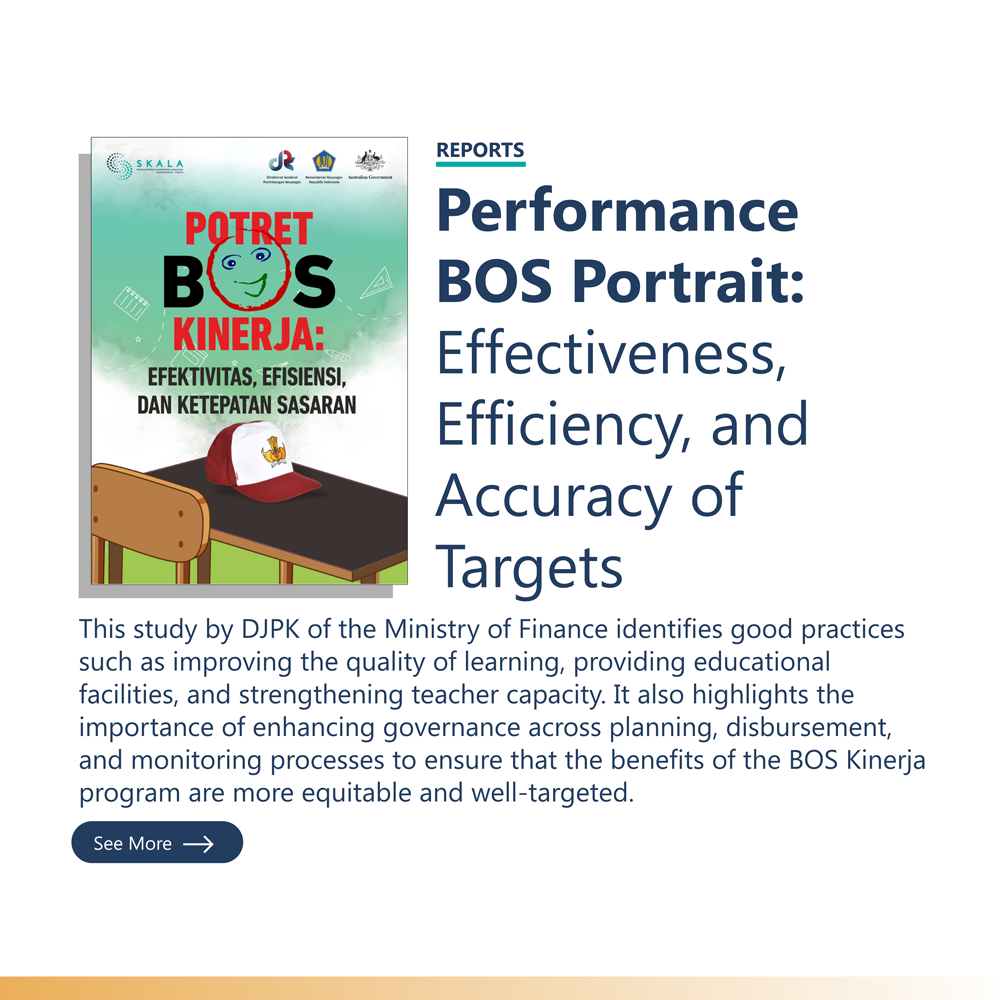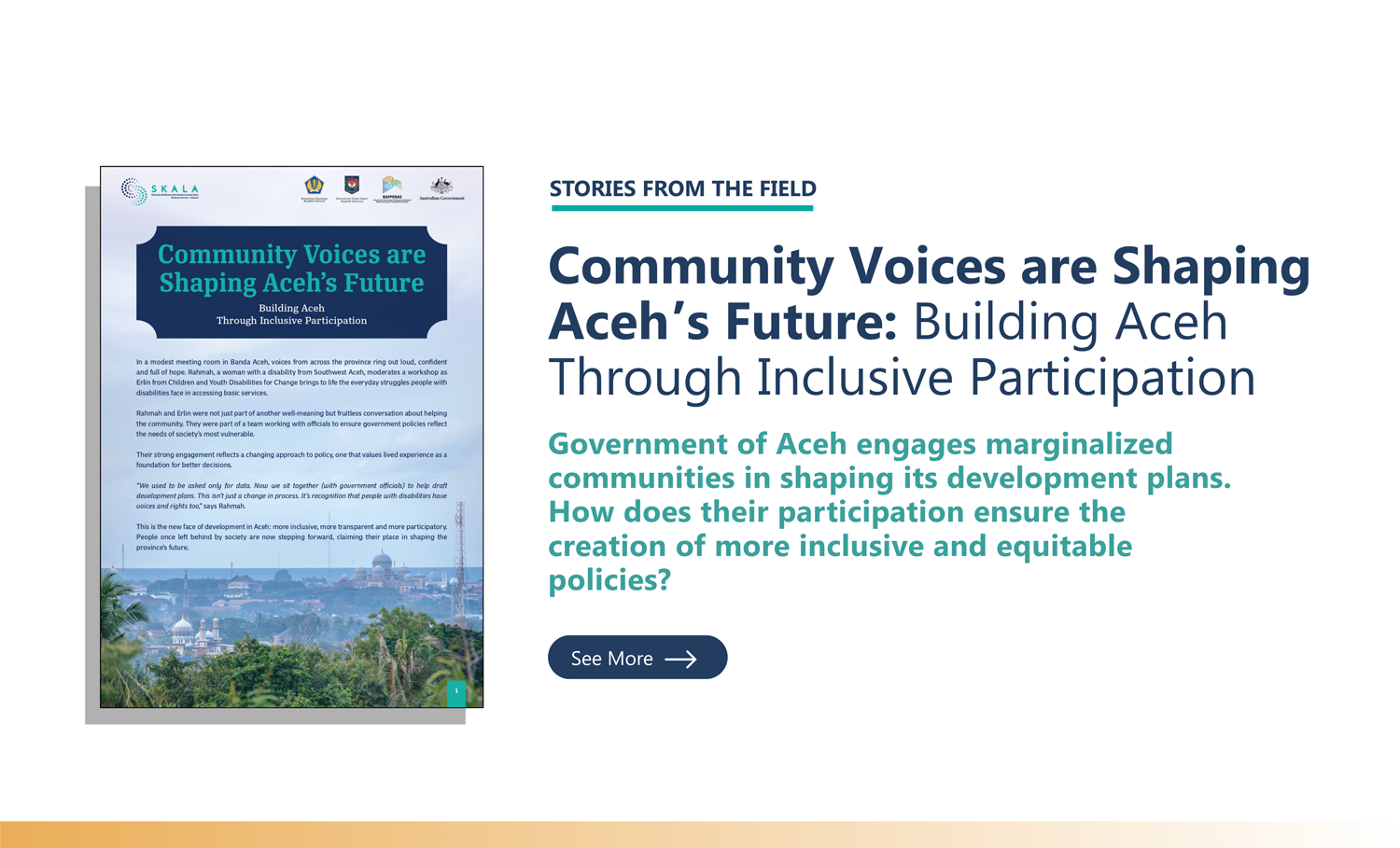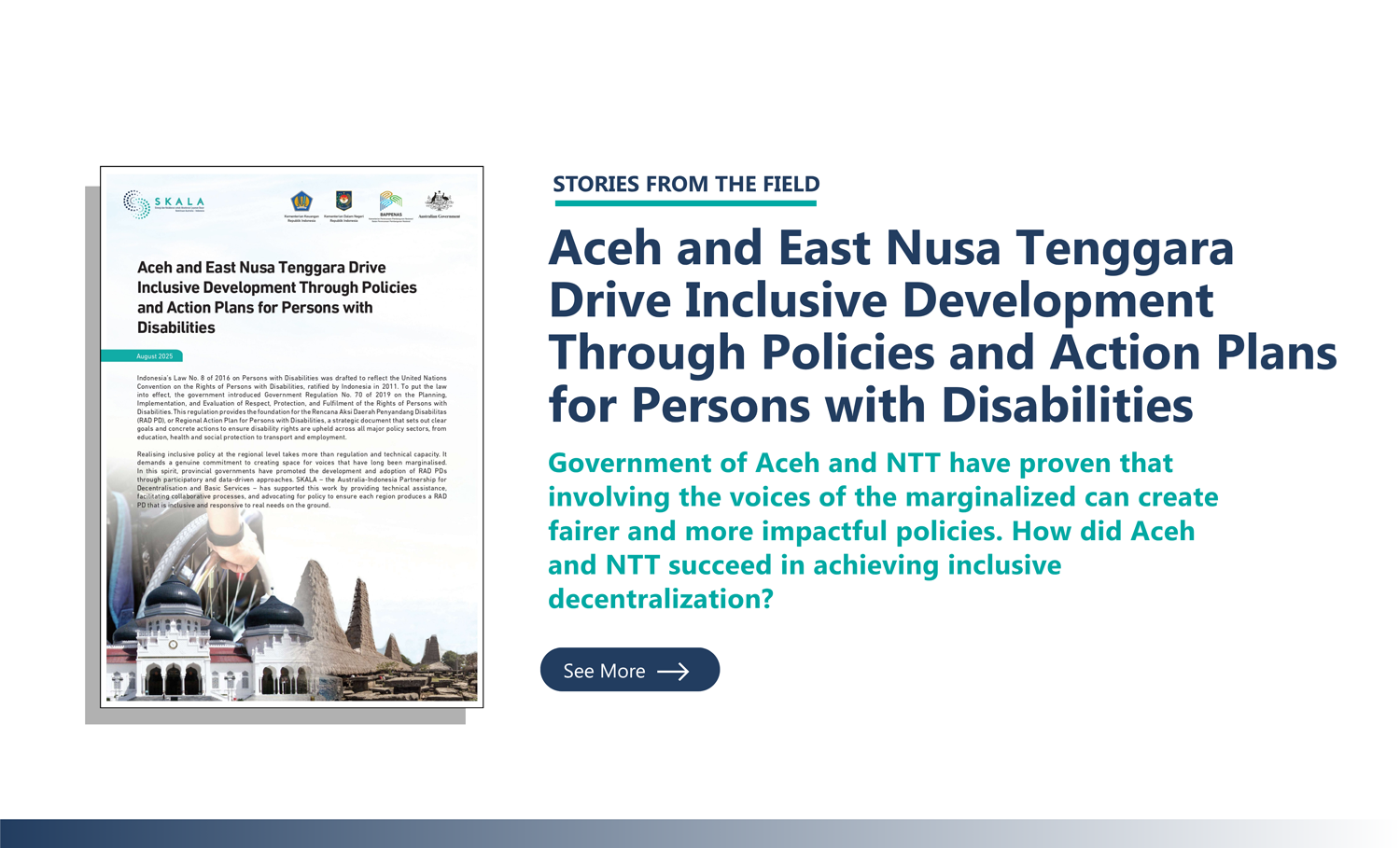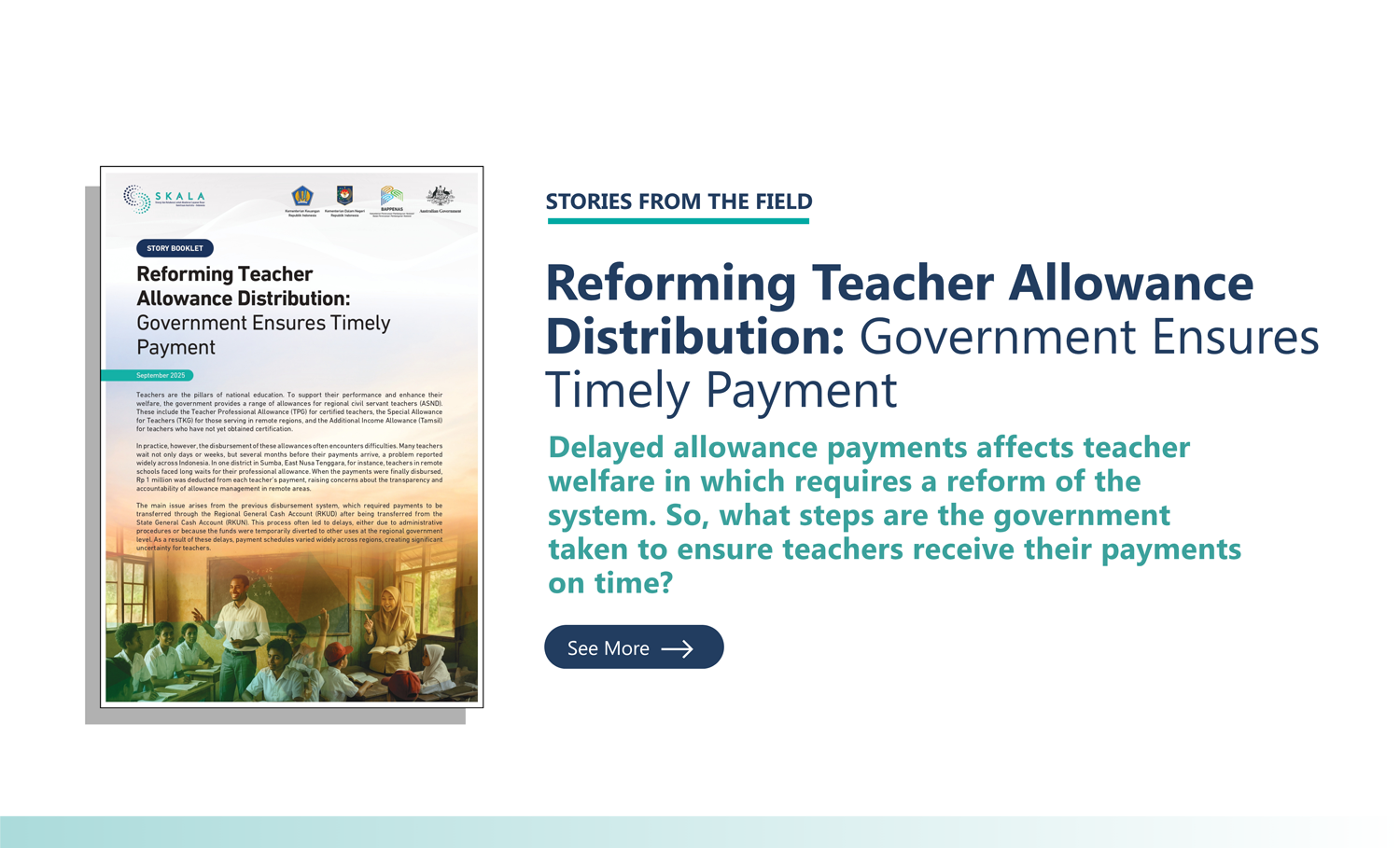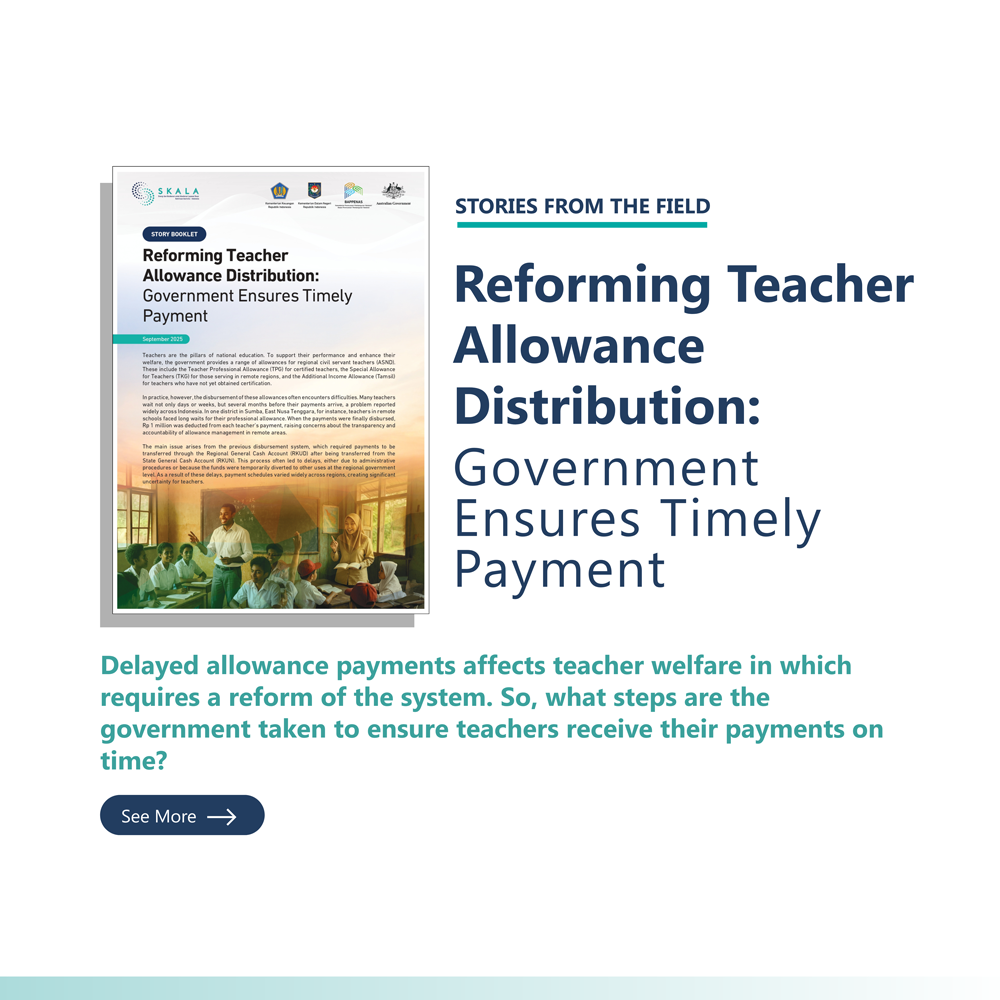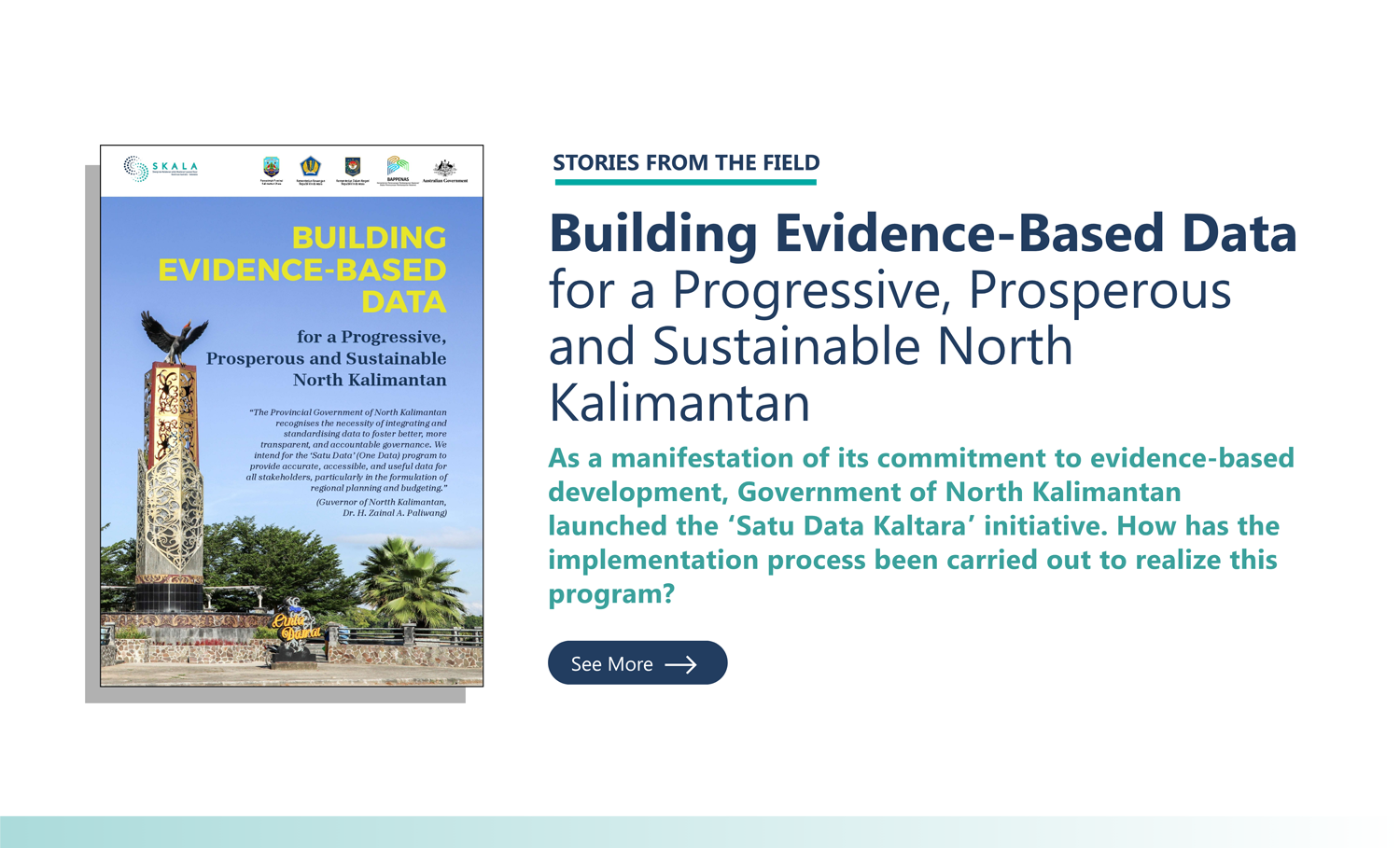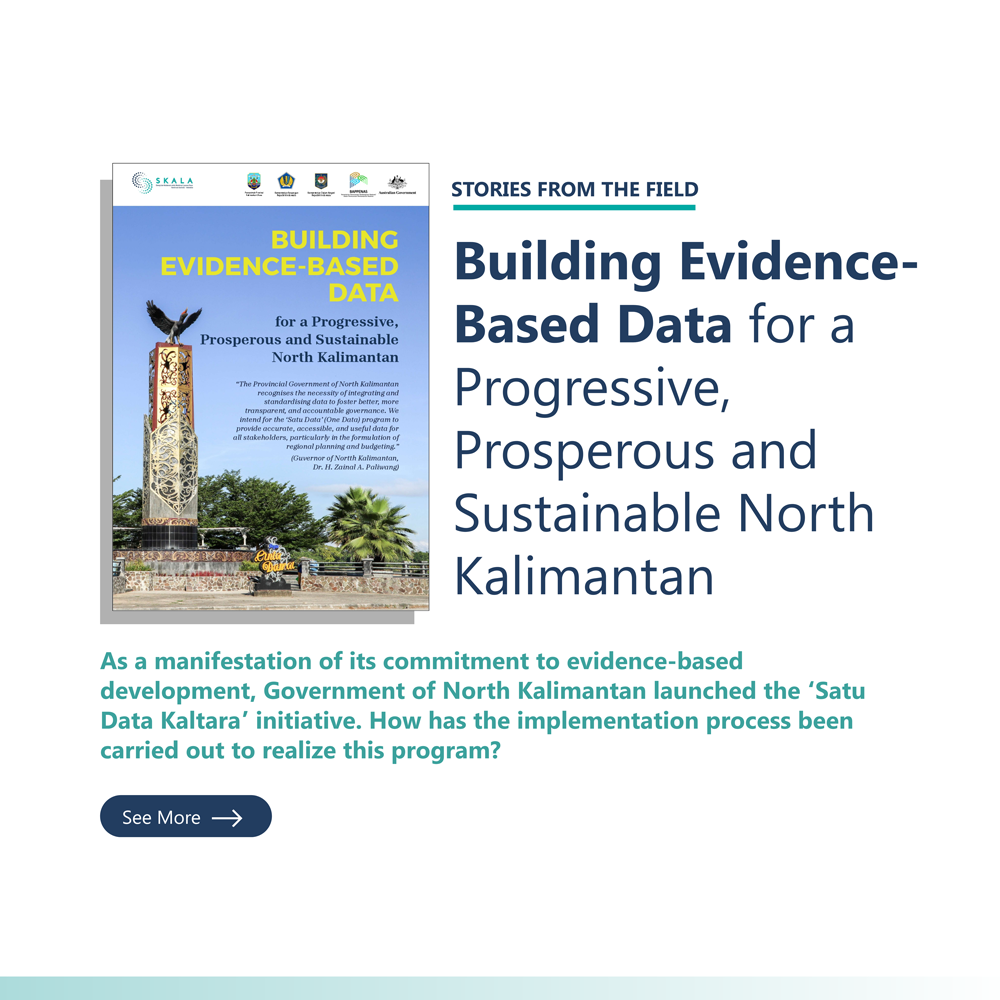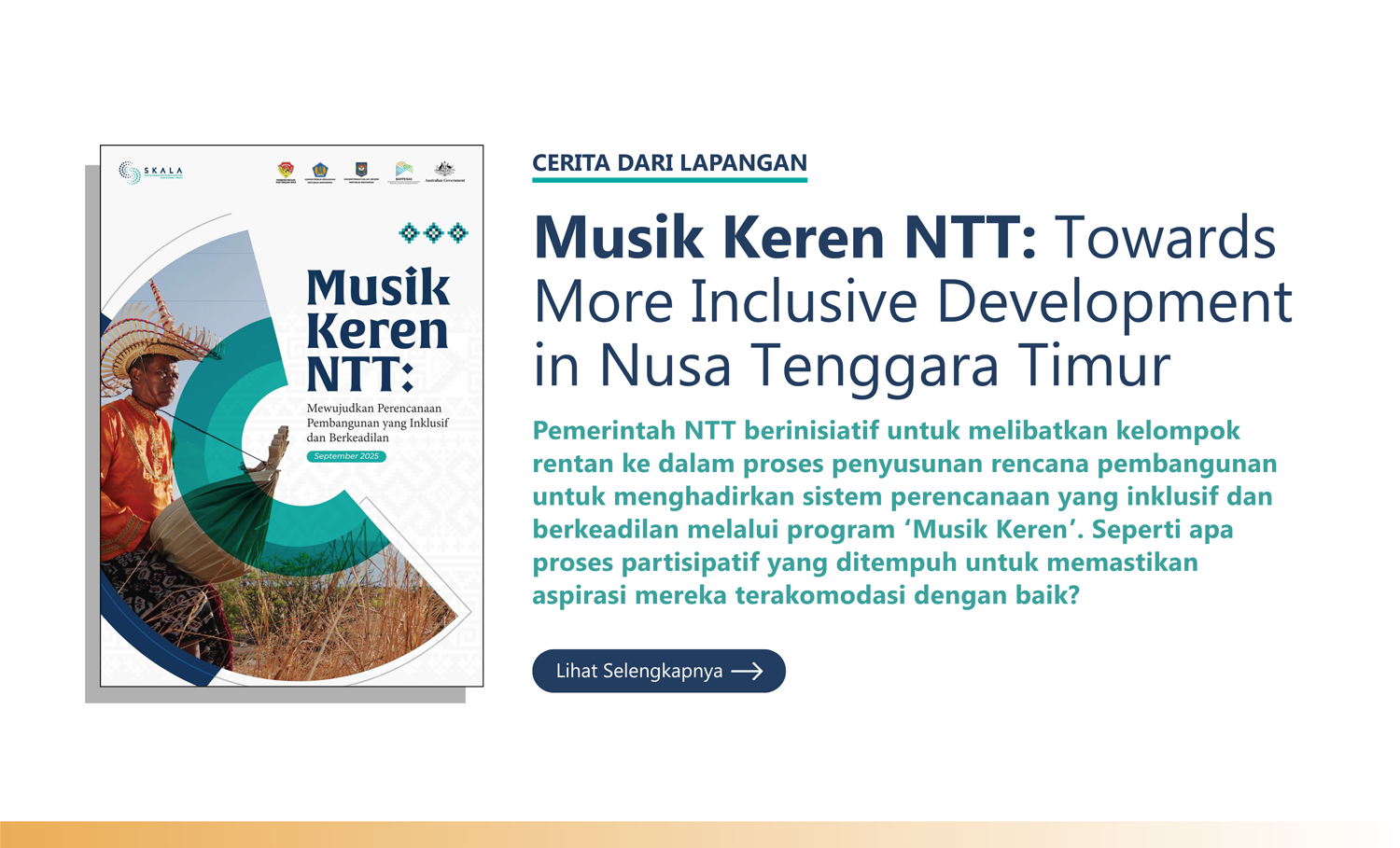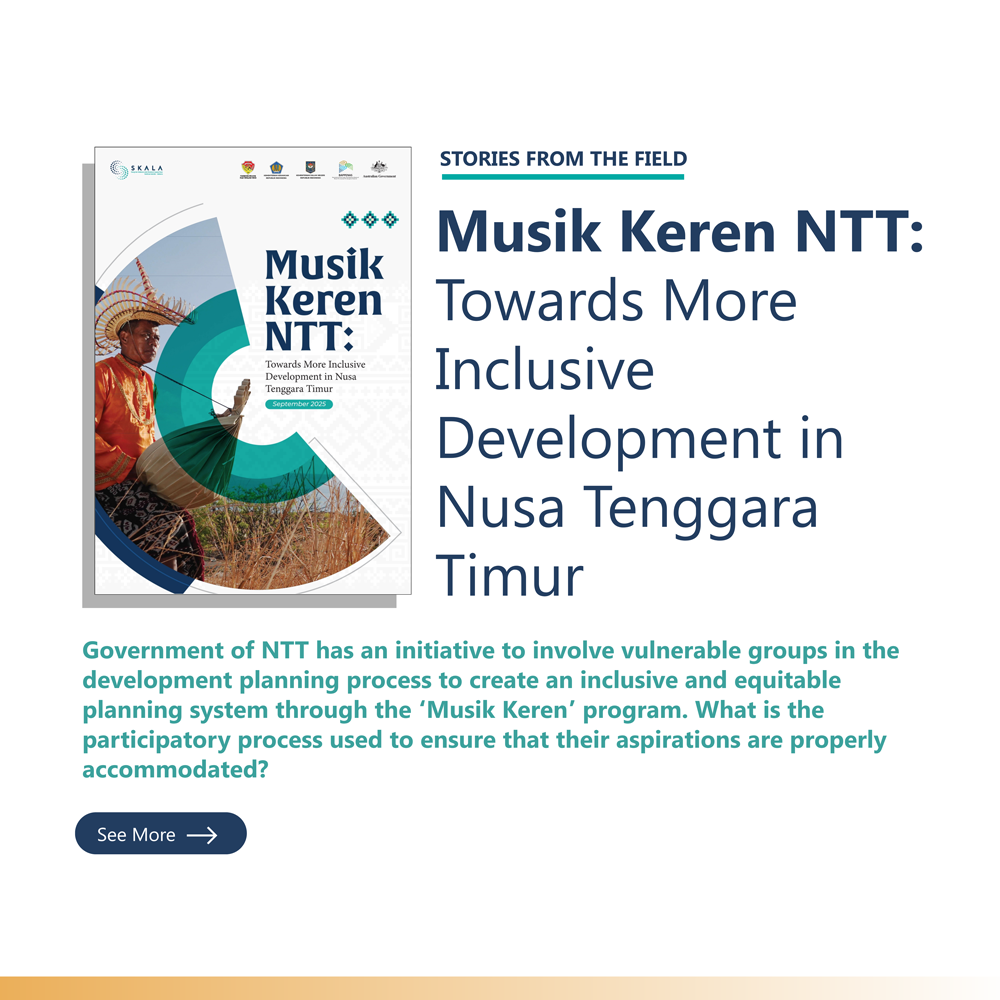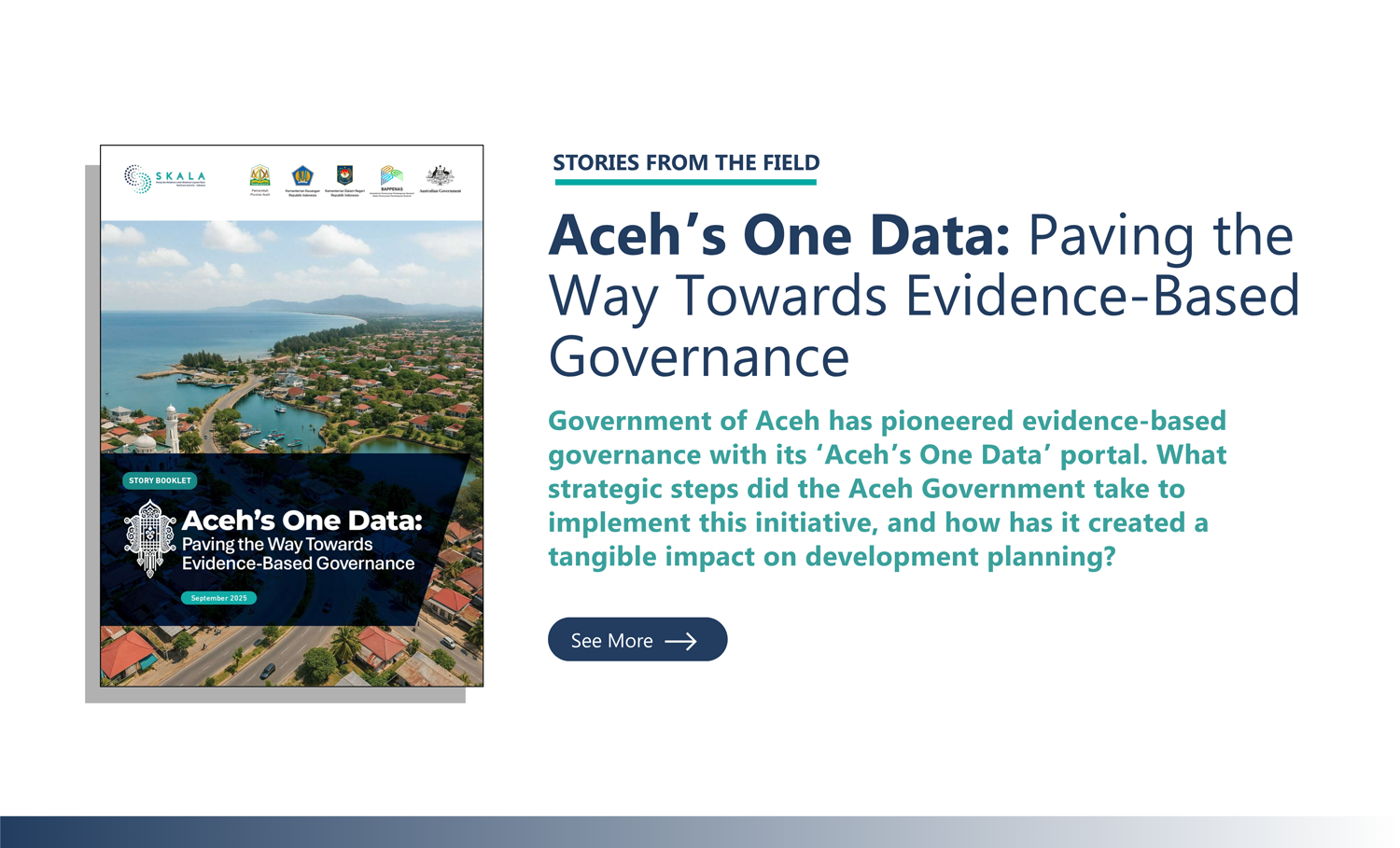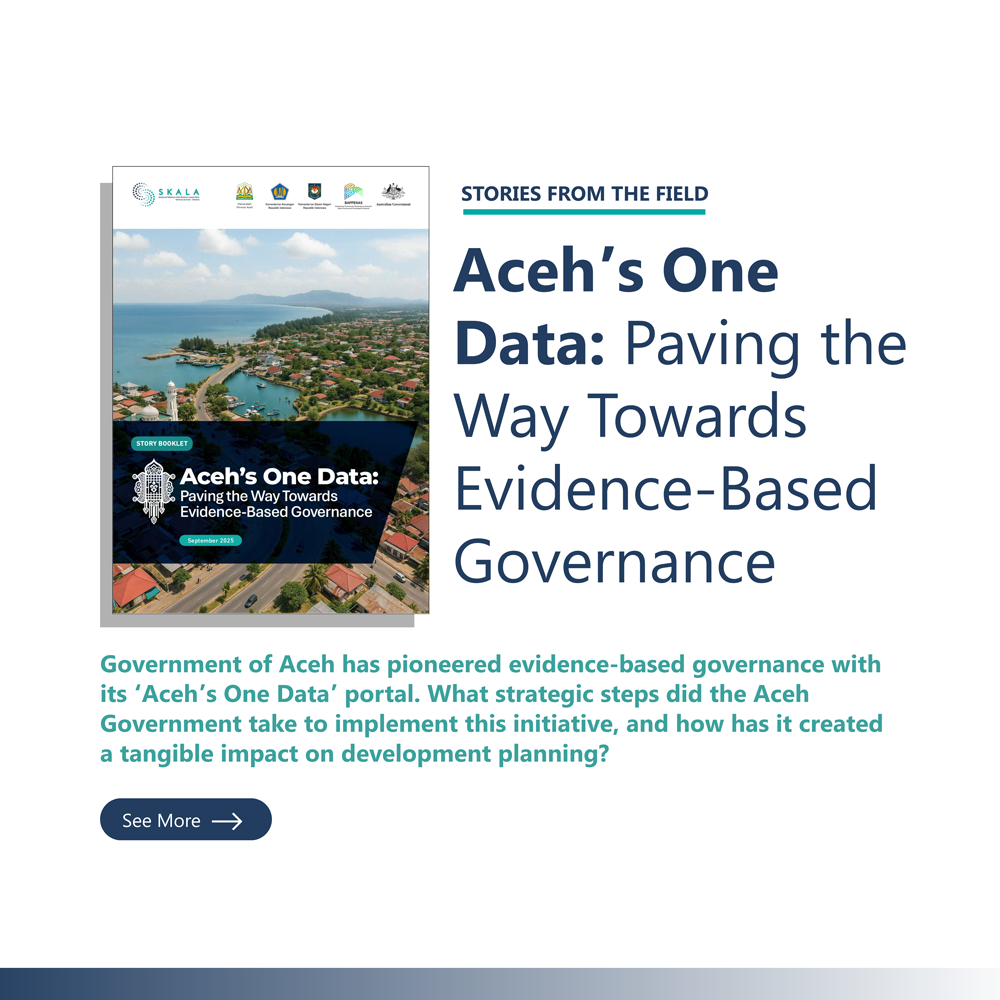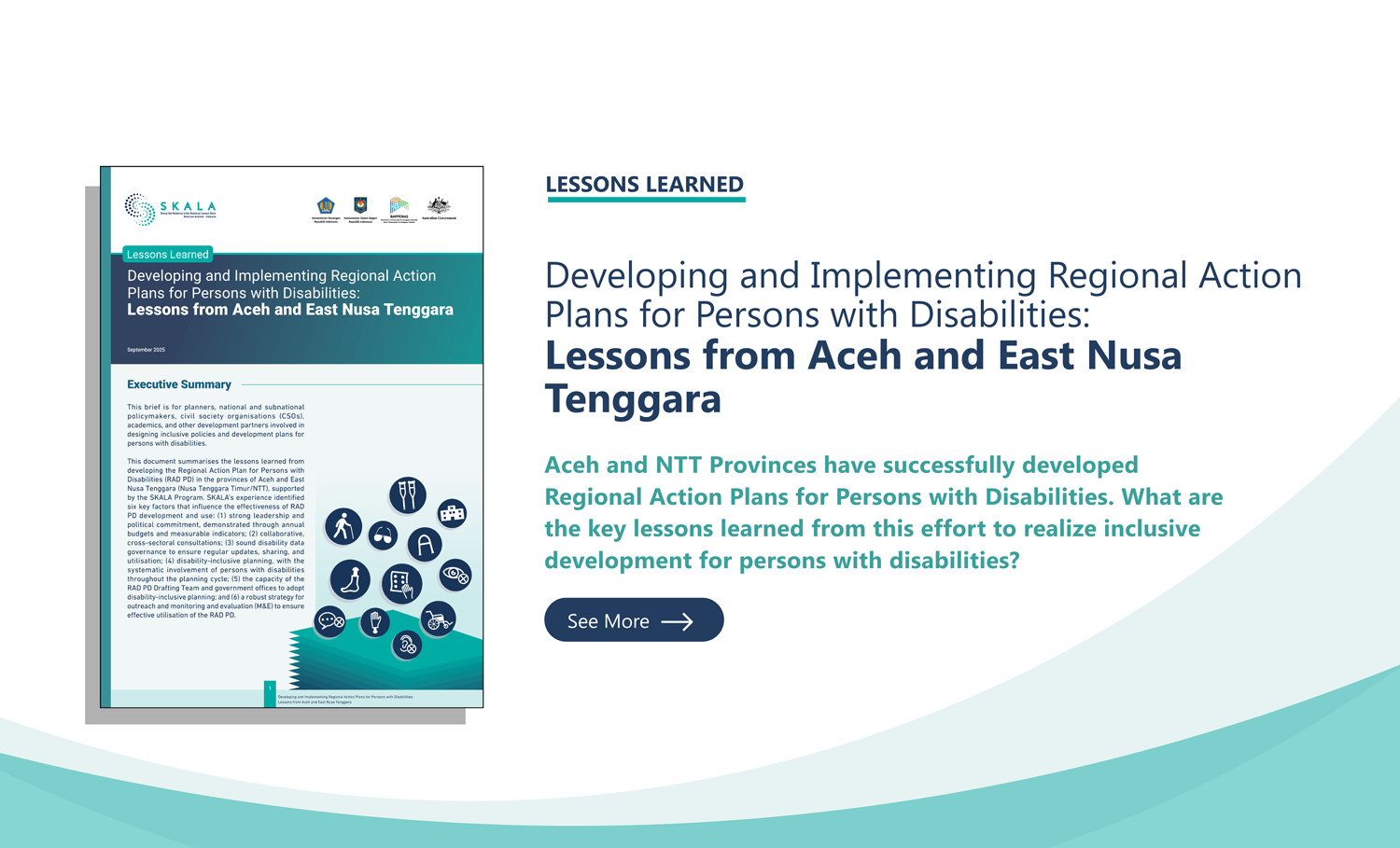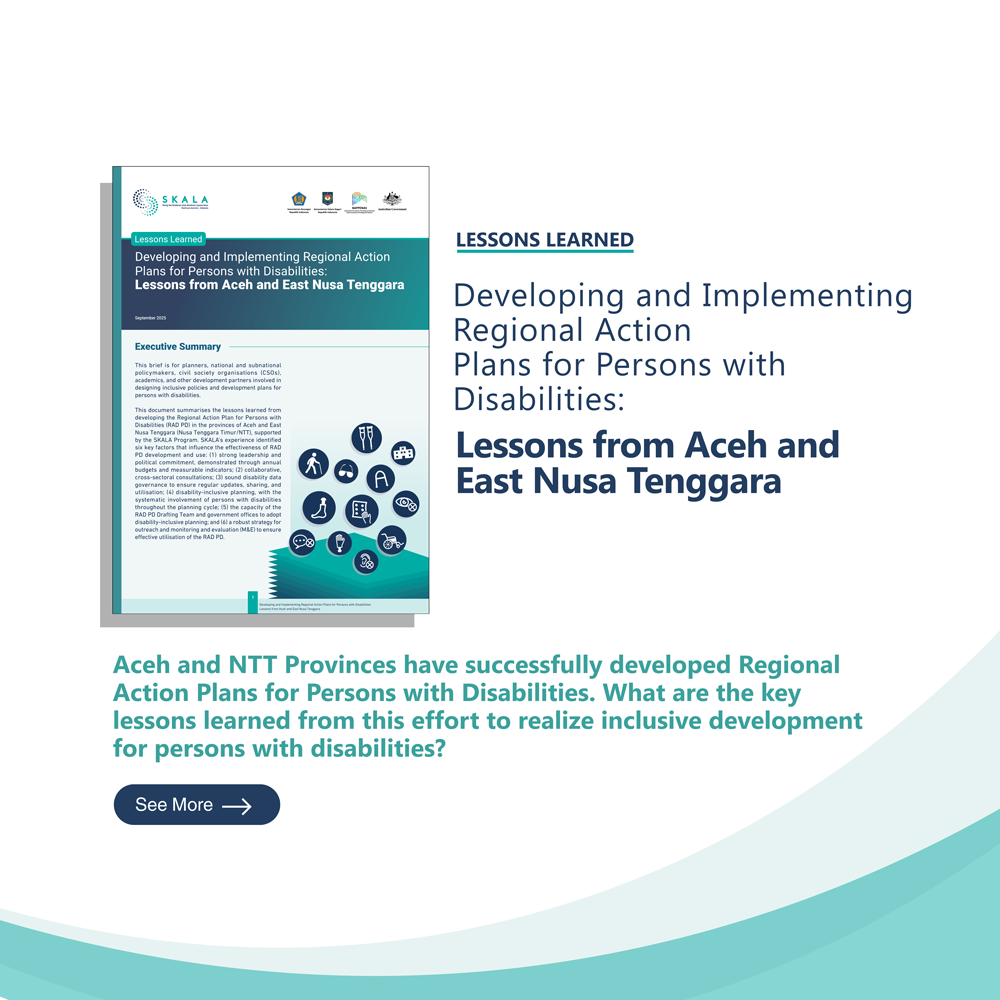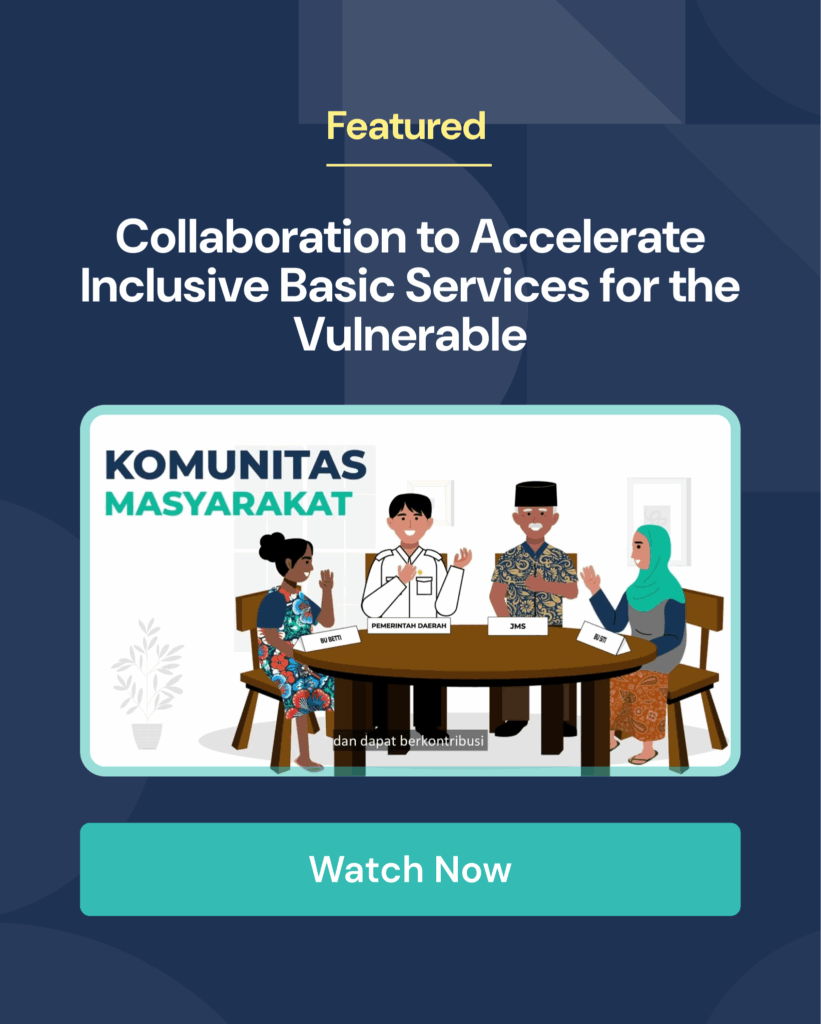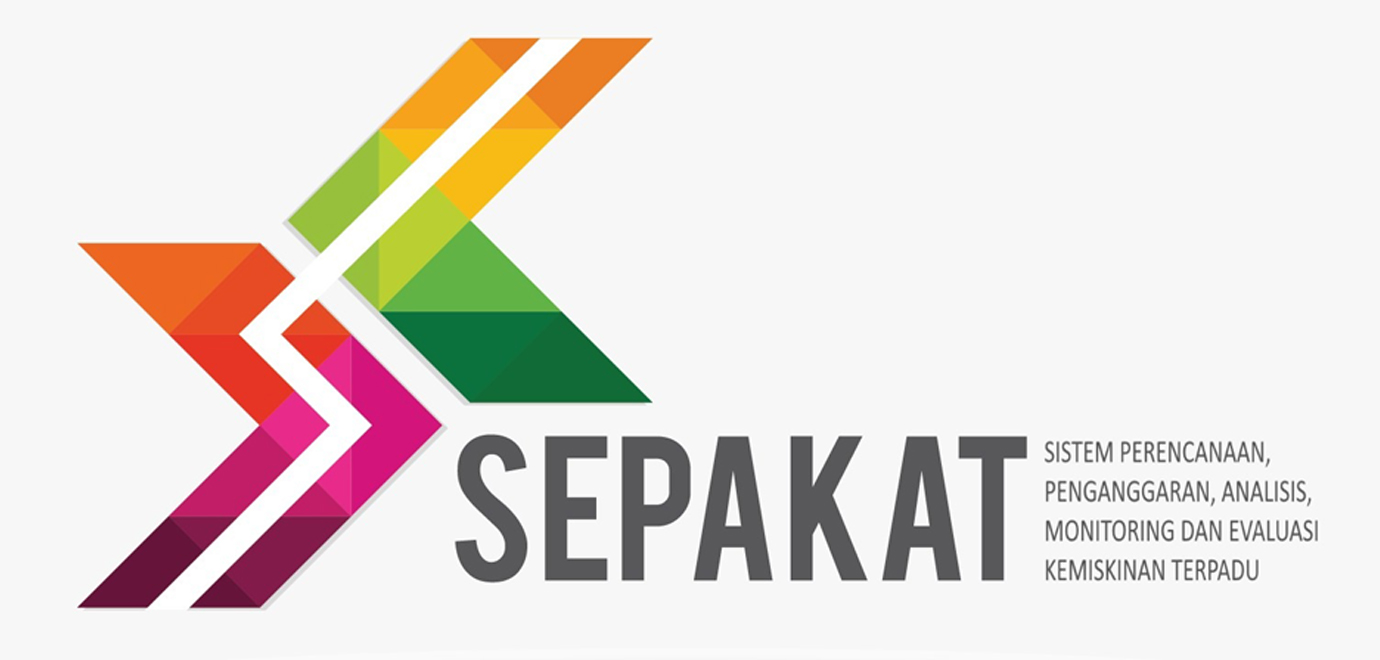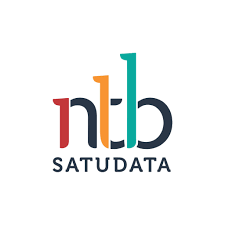What We Aim to Achieve?
Goal
To help reduce poverty and inequality within Indonesia by improving basic service provision to poor and vulnerable communities in less developed regions.

End Of Program Outcomes
Central ministries develop and implement improved policies, plans, and budgets that can support better basic service provision in less developed regions.
Selected provincial and district governments more effectively plan, budget, and manage for basic service provision.
Women, people with disabilities and vulnerable groups in targeted areas are represented and able to exercise influence in subnational service delivery-related planning and decision-making processes.
- EOPO 1
- EOPO 2
- EOPO 3
- Central agencies improve the subnational policy and regulatory environment on Public Financial Management (PFM) and the implementation of Minimum Service Standars (MMS)
- Central agencies use evidence to improve decentralisation and prioritisation
- Central agencies increasingly apply GEDSI analysis and evidence in preparing their policies, plans and budgets to ensure the needs of women, people with disabilities and vulnerable groups are addressed
- Selected provincial and district government better use PFM for the provision of basic services that meet the MSS
- Selected provincial and district government increasingly utilize evindence on women, people with disabilities and vurnerable communities’ service delivery needs in their planning and budget decisions
- Senior leaders in selected provincial and district government better recognize, measure and plan for the specific service delivery needs delivery needs of all citizens
- Strengthened government engagement with women, people with disabilities and vulnerable groups in sub-national planning and decision-making processes
- Increased participation and influence of women, people with disabilities and vulnerable groups and/or their representatives in sub-national planning and decision-making processes
- Village level information systems produce stronger analysis on the needs of women, people with disabilities and vulnerable groups to inform more inclusive service delivery
- Main Intervention Area
- Additional Intervention Area (gradually in phase 1)
It is estimated that by 2045, the number of elderly people in Indonesia will reach more than 65 million. What are the strategies and programmes implemented by the government to face this challenge? Find out with the Director of Poverty Alleviation and Community Empowerment at the Ministry of National Development Planning/Bappenas in Obrolan K, a discussion full of meaning!

“Thanks to the support of SKALA, we have a new strategy for improving data governance through the Aceh Open Data portal. Our goal of 2 years can now be achieved within 6 months. I am confident that within the next year, we can provide more up-to-date data to better inform policymaking.”

“In just six months since assuming the role of SEKDA, I worked closely with SKALA on several development initiatives, including a focus on SPM affairs. With SKALA's assistance, we have seen significant improvements in the achievements of SPM NTT Province. This is a clear testament to the invaluable support provided by the Australian Government Partnership through SKALA.”
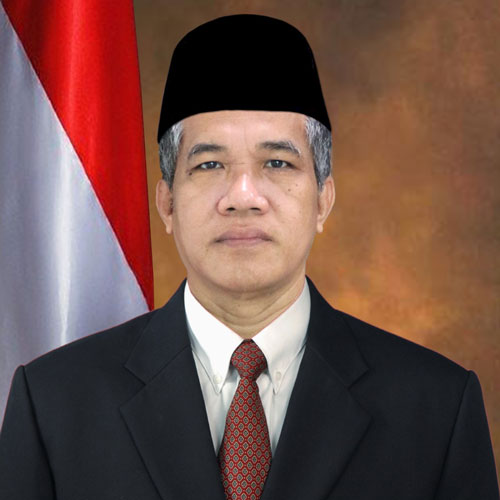
“Thank you for the hard work provided by SKALA, which has offered an approach and program support to develop and optimize the use of Kaltara data, making it more systematic and effective.”
Join us and become part of our knowledge-sharing network!
Please follow SKALA WhatsApp Channel to join.
Follow the Channel





